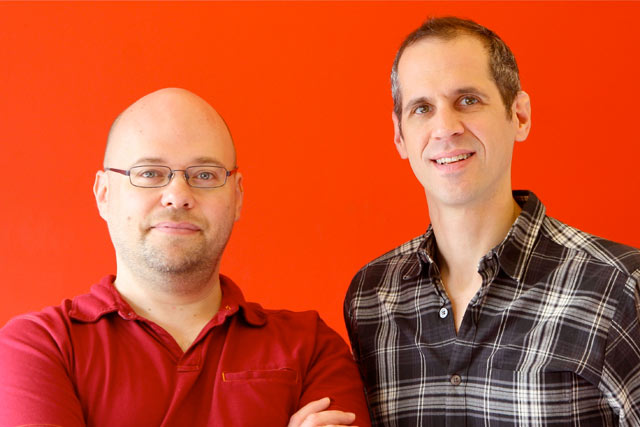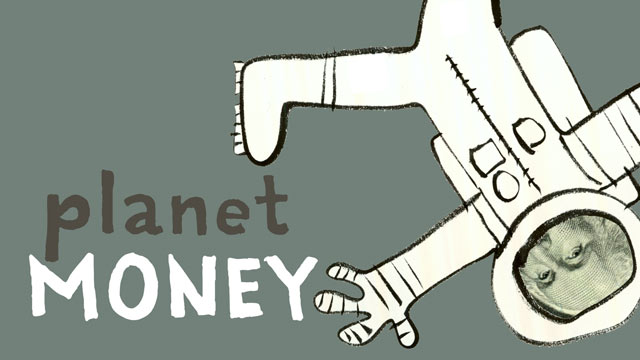Taking a Trip to Planet Money
Chatting with NPR's Alex Blumberg in Advance of Wednesday's Live Show

Alex Blumberg and David Kestenbaum of National Public Radio’s popular Planet Money radio program will be presenting their show live at UCSB on Wednesday, October 26, as part of this season’s Arts & Lectures series. Planet Money has garnered both critical praise and a high volume of diverse listeners because of its “un-stuffy” style in dealing with often technical issues. Blumberg, who’s also a producer for This American Life, and Kestenbaum have an uncanny ability to shed light on the complex economic realities that have come to define the 21st century thus far. Blumberg spoke with The Independent earlier this week.

What’s Planet Money Live going to be like? Is it a speaking engagement? A performance?
It’s like a mix between those. It’s just me and Dave on stage, and we’ll be playing clips of various stories we’ve done. There’s some audience engagement, too. I would never say that it’s a “show,” but it’s definitely more than just a talk. Our goal is to entertain as well as inform.
And is there some sort of theme?
I need to work on a better way to say this, but the theme is basically, “What should we worry about with the economy, and what shouldn’t we?” Like, what lies ahead, sort of.
You seem to do a majority of your reporting on the East Coast, which seems valid given the issues on Wall Street and in Washington, D.C. But are there any issues unique to the West Coast?
I don’t know about the West Coast in general, but California certainly. California has a lot of issues. It was a big epicenter of the housing bust, and there’s a lot of budget craziness that seems be hamstringing legislators. At the state level, there’s all these mandated costs according to the state Constitution and then you’re not allowed to raise revenue; it seems like a recipe for disaster. Then the ideological gap between different sectors of the state means that nothing can really be done, and there’s never any consensus reached.
Have you felt more empowered over the last few years to be more “economic” and “technical” as a result of this somewhat renewed public interest in economics?
Well, there’s definitely been a geeky explosion of economic interest on the Internet, but our challenge is to not get too far into that. We’re at our best when we’re hearing from real people in an economic context but not just talking to economists. And that’s what I find so interesting about this — there is real drama going on, but it’s not reported that way. So we try to find the part that people can relate to.
There has been a move away from the financial center, which has been a bit of a challenge because that’s what we covered for so long. But, at the same time, that’s been kind of a relief also, because people who work in finance are not very good in interviews. We can work an economic angle on a lot of stuff, though. I just did, and I’m going to do a few more stories about preschool, because it actually ends up having a pretty significant economic impact. I feel like the money angle is a pretty good angle to tell a lot of stories.
So what should we be worried about?
There’s only a couple economic things to be worried about. I mean, climate change is a worrisome thing, and I’m not exactly sure how to deal with it with economics, but I’ve been doing some research about that. But in terms of economics: If you have a college degree, you’re probably going to be fine. The recovery will happen; chances are that you’ll have a job, and you’re going to be fine. In fact, chances are that the economy that’s coming is going to be awesome for you.
But if you don’t have a college degree, chances are the economy that’s coming is going to be much worse, very much worse than the economy that we’ve had. And that’s just due to the changing shape of the economy, basically, and what types of skills you’ll need and what people will be willing to pay you to do.
The only other issue that I find really worrisome is the cost of health care. People have been talking about the budget deficit and about how we’re broke. But that’s not an issue this year; it’s not going to be an issue next year; it’s probably not going to be an issue in 10 years. But once you get down 10 years, then that really becomes a very real thing. We’re on an unsustainable path with government spending, but the only thing that really matters in that discussion is the cost of health care. The government is bankrupting themselves with the cost of health care.
But overall I think, for educated people, the economy in the 21st century is going to be alright.
4•1•1
Planet Money Live starts at 8 p.m. on Wednesday, October 26, at UCSB’s Campbell Hall. Tickets are available online at artsandlectures.sa.ucsb.edu or via phone at (805) 893-3535.



